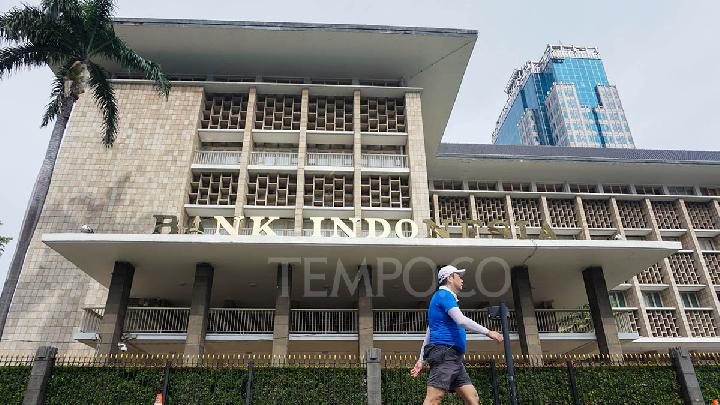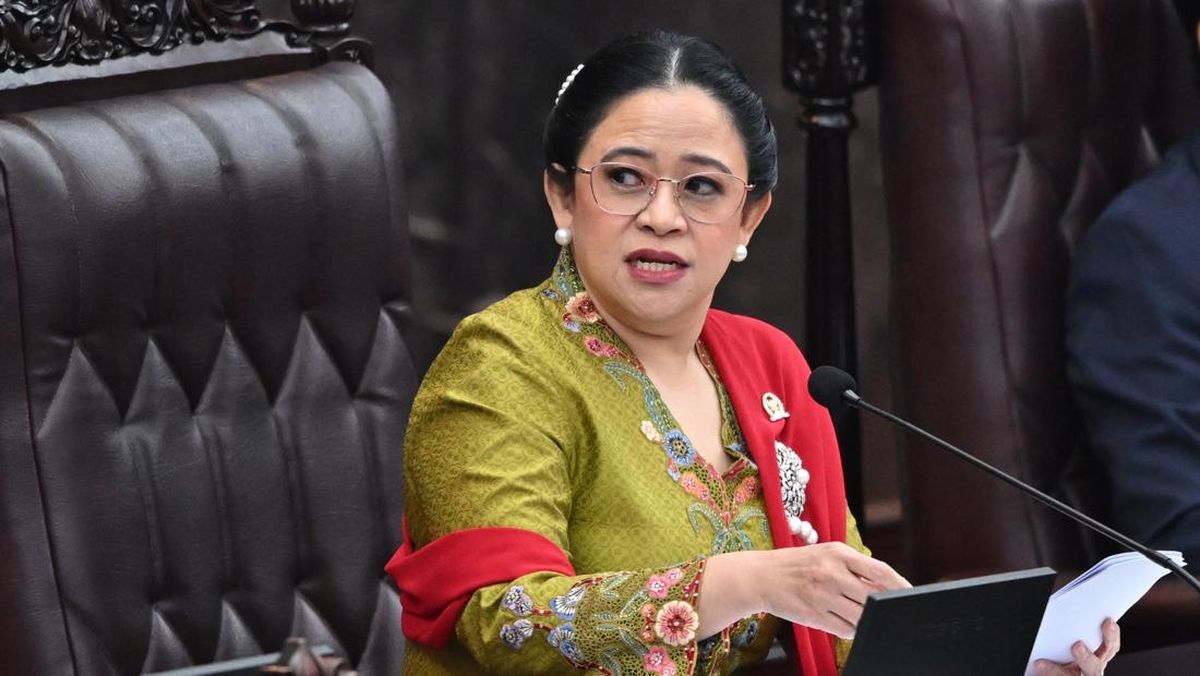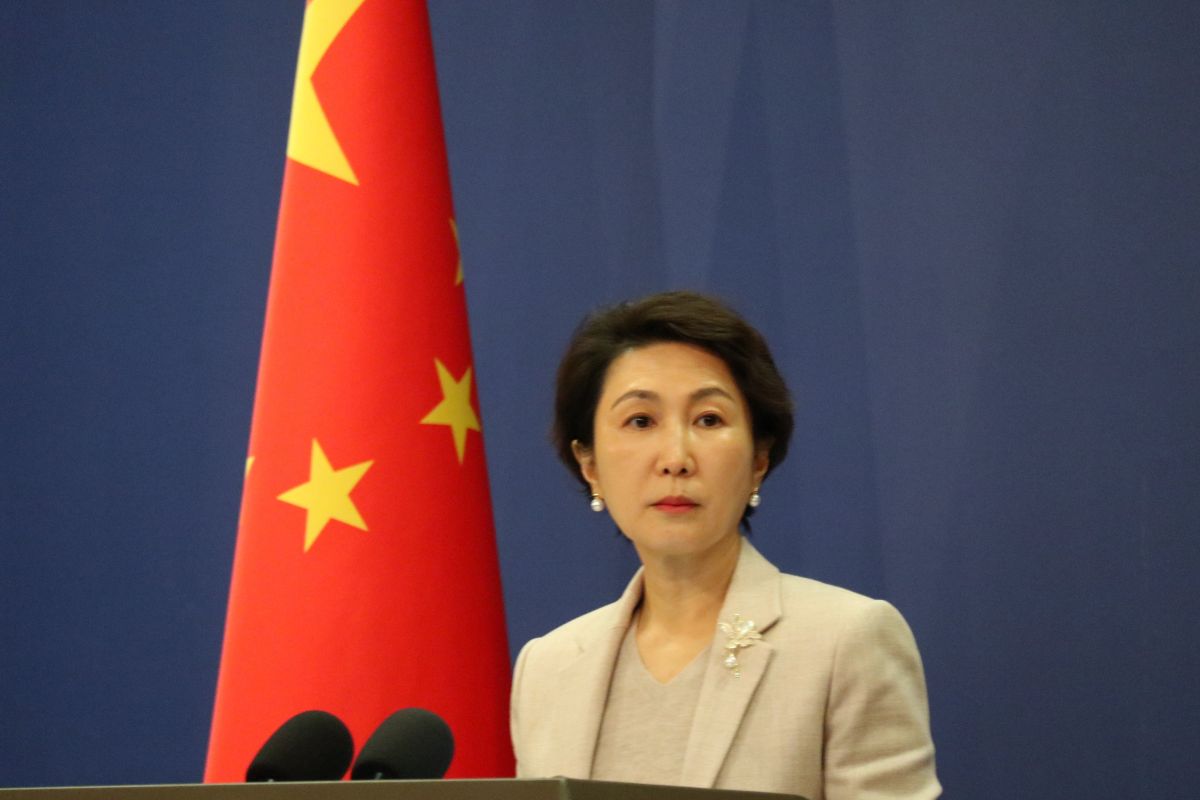October 22, 2025 | 10:43 am

TEMPO.CO, Jakarta - The Chief Economist of Indonesia's Permata Bank, Josua Pardede, considers the risk of capital outflow to be relatively stable or still controllable if there is a 25 basis points reduction of BI Rate to 4.50 percent in October. "The outflow risk tends to be relatively manageable for a small reduction (25 bps) as long as it is accompanied by an aggressive policy mix," said Josua as quoted by Antara on Wednesday, October 22, 2025.
According to him, this step needs to be accompanied by measured intervention using various instruments, both in the spot market and through Domestic Non-Deliverable Forward (DNDF). This is similar to what was done in the previous month and proven effective in holding pressure in the forex market during significant outflows.
In addition, Bank Indonesia (BI) also needs to maintain the attractiveness of short-term rupiah-denominated instruments, both the Indonesian Rupiah Securities (SRBI) and Government Bonds (SBN), through market operations. It is also necessary to provide clear yield guidance so that investors do not simultaneously exit.
Stabilization efforts can also be strengthened by increasing forex reserve buffers through withdrawal of loans or planned issuance of government foreign currency bonds, in order to help stabilize market expectations.
On the other hand, Bank Indonesia needs to convey a clear communication narrative that the reduction of interest rates is a measured step, not unlimited easing. The central bank also needs to affirm that the direction of the next policy will still depend on economic data developments.
Josua assesses that there is a possibility for a 25 bps reduction in the benchmark interest rate to 4.50 percent, which will be announced in the Meeting of the Board of Governors (RDG) of Bank Indonesia in October.
This policy space is open because core inflation remains controlled and the real interest rate is still relatively high. With a benchmark interest rate or BI Rate of 4.75 percent and low expectations of core inflation in the future, there is still room to reduce the real interest rate without sacrificing price stability.
Domestic demand is also considered not fully recovered, so the interest rate cut can help boost consumption and credit. Improved banking liquidity also makes monetary policy transmission more effective, allowing interest rate cuts to be channeled to the real sector more quickly.
On the other hand, Josua believes that the pressure on the rupiah is relatively controlled even in the event of outflows. This is supported by a commodity trade surplus, BI's intervention in the spot and DNDF markets, as well as forex reserve revaluation, which provides a safer space when the central bank cuts interest rates.
However, if Bank Indonesia holds the benchmark interest rate at 4.75 percent, Josua said that this decision is likely based on several considerations. The delay could be an effort to manage signals to the market, after the previous cut was seen as tolerance for the rupiah's depreciation which triggered a surge in hedging.
BI can also choose to wait for clarity on the Fed's decision, given the close schedule of FOMC, so that the interest rate differential does not narrow too much. Meanwhile, from a technical perspective, holding the interest rate gives Bank Indonesia time to manage portfolio flows and domestic liquidity amidst increasing maturity of the Indonesian Rupiah Securities (SRBI) in October-November.
Editor's Choice: Bank Indonesia Predicts Q4 Economic Slowdown Despite Majority Sector Growth
Click here to get the latest news updates from Tempo on Google News
15 Local Governments in Indonesia with the Biggest Bank Deposits, According to Minister Purbaya
2 jam lalu

According to Purbaya, the allocated funds from the central government to the regions are available and ready to be used to support development in each region.
Rupiah Opens Stronger as Trump and Xi Expects "Fair Deal" in South Korea Meeting
19 jam lalu

The exchange rate of the rupiah at the opening of trading on Tuesday in Jakarta strengthened by 7 points or 0.04 percent to Rp16,568 per U.S. dollar.
Bank Indonesia Predicts Q4 Economic Slowdown Despite Majority Sector Growth
2 hari lalu

Bank Indonesia (BI) stated that business activities are expected to maintain positive growth across the majority of business fields.
Rupiah Strengthens on Optimism Over Easing US-China Trade Tensions
6 hari lalu

An analyst from Woori Bank, Rully Nova, predicts that the rupiah will strengthen in today's trading, ranging from Rp16,520 to Rp16,620 per US dollar.
Bank Indonesia Records Slower Growth of External Debt in August 2025
6 hari lalu

Bank Indonesia (BI) records Indonesia's external debt (ULN) in August 2025 grew at a slower rate, 2.0 percent (yoy) to reach US$ 431.9 billion.
Rupiah Strengthens Following Fed Governor's Remarks
6 hari lalu

The rupiah at the close of Wednesday's trading strengthened by 27 points or 0.16 percent to Rp16,576 per U.S. dollar.
Indonesia's Purbaya Mulls Additional Cash Injection for State-Owned Banks
7 hari lalu

Finance Minister Purbaya Yudhi Sadewa has spoken about the chance to inject additional funds into state-owned banks (Himbara).
Rupiah Falls as Market Worries About US-China Trade War
8 hari lalu

The rupiah at the opening of Monday morning trading in Jakarta weakened by 20 points or 0.12 percent to Rp 16,590 per US dollar.
Today's Top 3 News: India Defeat Indonesia 2-1 in U-23 Friendly Ahead of 2025 SEA Games
10 hari lalu

Here is the list of the top 3 news on Tempo English today.
Bank Indonesia Records Rp1.19 Trillion Foreign Capital Outflow This Week
10 hari lalu

Since the beginning of the year until October 10, 2025, Bank Indonesia recorded a net outflow of foreign capital reaching Rp132 trillion in SRBI.






























:strip_icc():format(jpeg)/kly-media-production/medias/5321271/original/035046300_1755668869-ong.jpg)
:strip_icc():format(jpeg):watermark(kly-media-production/assets/images/watermarks/bola/watermark-color-landscape-new.png,1125,20,0)/kly-media-production/medias/5343503/original/009674500_1757434237-20250909AA_Timnas_Indonesia_U-23Vs_Korea_Selatan-03.JPG)
:strip_icc():format(jpeg)/kly-media-production/medias/5118338/original/096777400_1738505541-20250202BL_Kedatangan_Patrick_Kluivert_dalam_Laga_Persija_Vs_PSBS_7.JPG)
:strip_icc():format(jpeg)/kly-media-production/medias/5390165/original/033586000_1761235850-Persib_Bandung_1.jpeg)
:strip_icc():format(jpeg)/kly-media-production/medias/5267951/original/037003100_1751185942-souza.jpg)
:strip_icc():format(jpeg)/kly-media-production/medias/5385175/original/090228500_1760881526-Bali_United.jpeg)
:strip_icc():format(jpeg)/kly-media-production/medias/5390103/original/004877800_1761227059-adam.jpg)

:strip_icc():format(jpeg)/kly-media-production/medias/5387623/original/017139800_1761069603-Persib_Vs_Selangor.JPG)
:strip_icc():format(jpeg):watermark(kly-media-production/assets/images/watermarks/bola/watermark-color-landscape-new.png,1125,20,0)/kly-media-production/medias/5233597/original/013085700_1748319472-IMG_9065.JPG)
:strip_icc():format(jpeg)/kly-media-production/medias/4605399/original/051919700_1696925599-Timnas_Indonesia_-_Arkhan_Fikri_dan_Hokky_Caraka_copy.jpg)

:strip_icc():format(jpeg):watermark(kly-media-production/assets/images/watermarks/bola/watermark-color-landscape-new.png,1125,20,0)/kly-media-production/medias/5348762/original/048902900_1757874102-Persija_Jakarta_vs_Bali_United-40.jpg)

:strip_icc():format(jpeg)/kly-media-production/medias/5387582/original/025954200_1761053138-selangor.jpeg)


:strip_icc():format(jpeg)/kly-media-production/medias/5390158/original/093322600_1761235520-eliano_dan_faisal.jpg)

